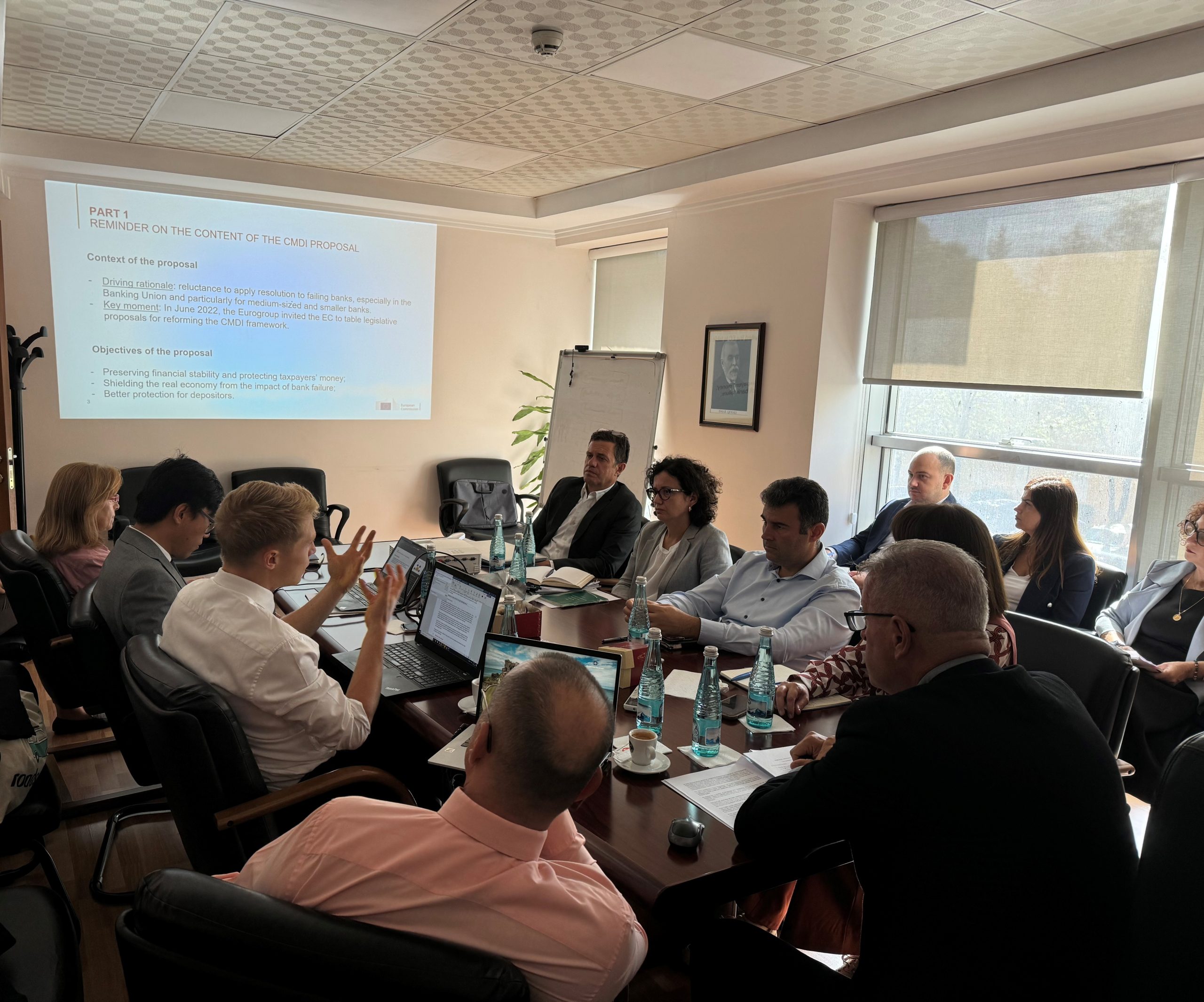The harmonization of the Albanian Deposit Insurance legislation with the acquis of EU is one of the strategic priorities of the Deposit Insurance Agency and as such is an integral part of the medium-term strategy for the period 2024-2026 drawn up and approved by ADIA. For this purpose, ADIA has continued with its efforts in the direction of addressing issues that constitute non-compliance with EU directives.
However, ADIA’s efforts are also influenced by developments in the EU regulatory environment. The main impact in this direction is related to the legal reform that the European Commission has undertaken in order to strengthen and improve the legal framework for managing financial crises and deposit insurance schemes in terms of maintaining financial stability and protecting taxpayers’ income, protecting the economy from the impact that the bankruptcy of banking institutions can have, as well as the more efficient protection offered to depositors. This legal framework includes Directive 2014/49/EU “On deposit guarantee schemes” as well as Directive 2014/59/EU “On extraordinary recovery and intervention in financial institutions”.
Assessing the impact and importance these changes have for the continuity of the compliance process, on September 17, 2024, the ADIA in cooperation with the FinSAC office of the World Bank organized an informative meeting with experts from the General Directorate for Financial Stability, Financial Services and the Union of Capital Markets (DG FISMA), which is the European Commission’s department responsible for EU financial services policies. The representative of DG FISMA provided an overview of the context in which the expected changes to the EU legal framework for financial crisis management and deposit insurance schemes are proposed. The meeting also focused on the appropriateness of these changes and their compatibility with the legal and regulatory framework for deposit insurance and emergency intervention in the Republic of Albania.
Given that the expected changes in the EU Directives also affect issues related to the mechanism of extraordinary intervention as well as following the continuous cooperation with the Bank of Albania, officials of the Department of Extraordinary Intervention also participated in the meeting.






